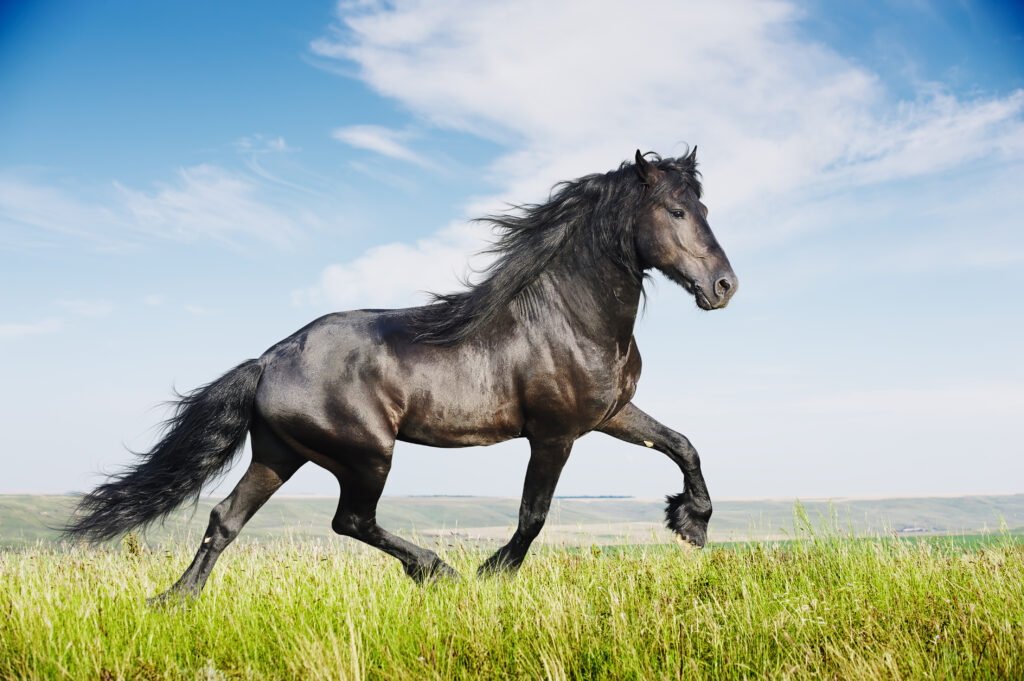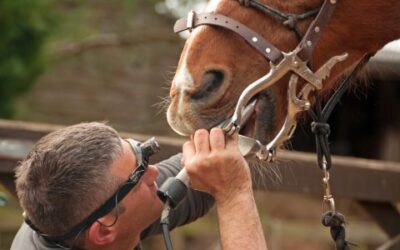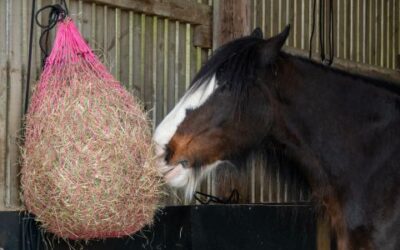
As equestrians, we all have the health and well-being of our horses at the forefront of our minds. While we can’t read their minds (it would be great if we could though!), there are some cues that help you to clue in on how your horse is feeling. Here are five signs that your horse is healthy and thriving under your care.
1. Shiny Coat
A shiny beautiful coat is one of the true signs of a healthy horse. A horse that has a dull coat may need additional dietary support or supplementation of key nutrients, including fats. A horse that has a rough coat may have underlying health concerns or a parasitic infection that should be addressed by a veterinarian.
2. Regular Manure
Generally speaking, a horse should defecate approximately 6 to 10+ times a day. More manure may be produced, especially if your horse is nervous or eating a high-forage diet. Less manure could suggest that your horse is constipated or colicing, it could also mean that your horse needs more forage in their diet, such as chopped forage for horses.
3. Muscle Tone
Even horses who are in low levels of work tend to exhibit some level of muscle tone. If you notice that your horse’s muscle tone is diminishing, especially along the topline, it may be a signal that something is amiss. Help your horse maintain their muscle with adequate amounts of protein in their diet, as well as ample exercise.
4. Vital Signs
Your horse’s TPR (Temperature, Pulse, and Respiration rates) are an objective way to determine if your horse is in good health. While every horse is an individual and can have slightly different baselines, typically an adult horse should have a temperature between 99-101.5°F. Their resting pulse should be 28-44 beats per minute, and their resting respiration should be 10-24 breaths per minute. If your horse is drastically higher or lower than these numbers, it is time to call the vet.
5. Well-Hydrated
It is essential that your horse is drinking adequate amounts of water and staying well-hydrated. Generally speaking, an adult horse should be drinking 5-10 gallons of water per day (more if the weather conditions or their workload require it). You can check your horse to see if they are dehydrated by checking their capillary refill time, which should be 1-2 seconds. Simply press your finger into the pink part of their gums, and see the amount of time it takes to return to its pink coloration. If it takes more than a few seconds, your horse may be in need of additional hydration.
At Lucerne Farms, we want to help you care for your horses in the best way possible. If you suspect that something is wrong with your horse, we recommend calling your veterinarian or equine health care professional for a complete evaluation.




